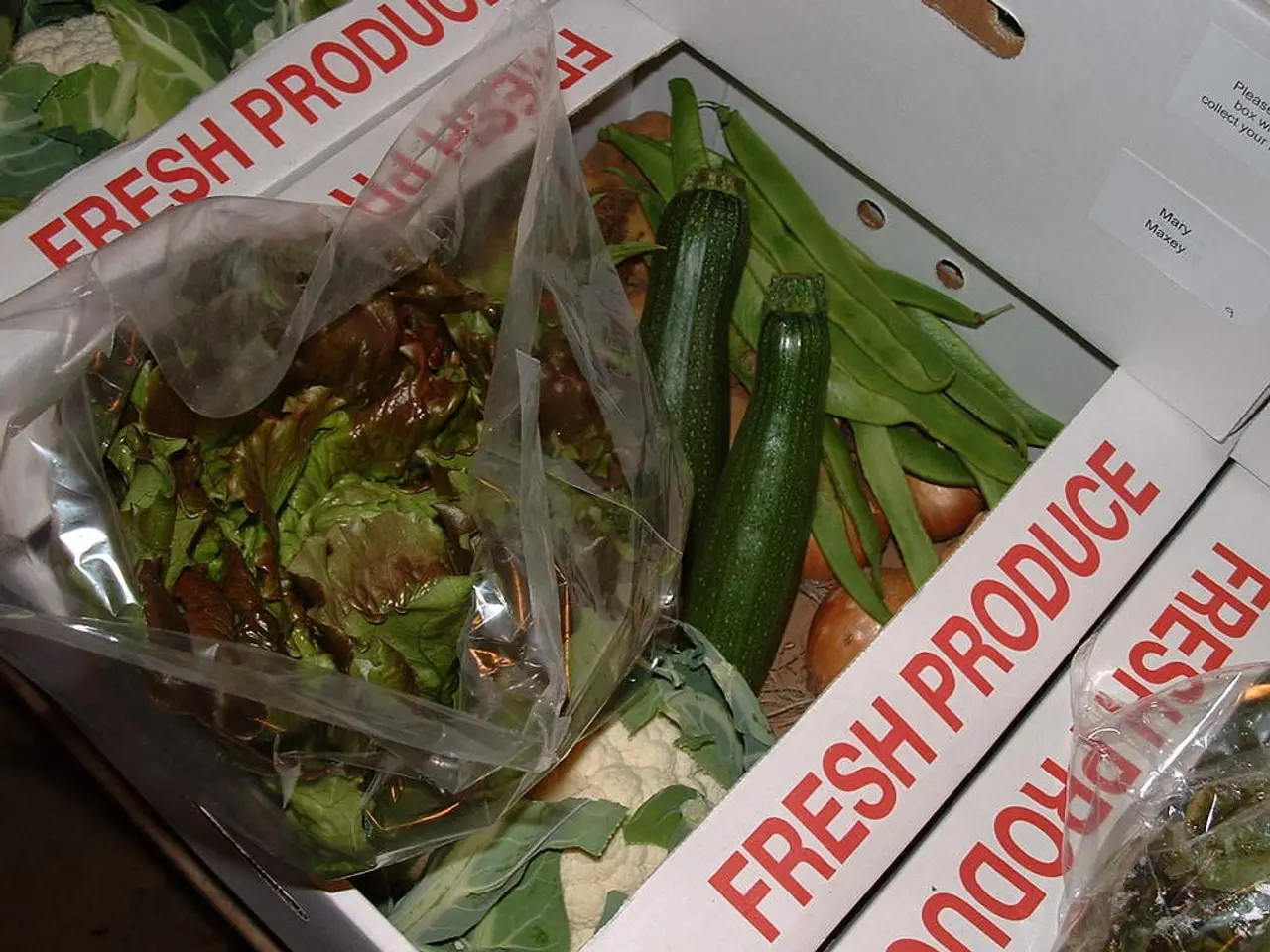Top Choices for Companion Plants Growing Near Eggplants in Your Garden
Eggplants can benefit significantly from strategic companion planting, as certain plants help deter pests, improve soil health, and make the most of garden space. Here's a guide to some of the best and least suitable companions for eggplants.
## Good Companion Plants for Eggplants
Beans (pole or bush) are excellent companions for eggplants. They add nitrogen to the soil, which improves eggplant growth, and help repel Colorado potato beetles that might otherwise attack eggplants [1][3]. Lettuce, spinach, and radish are good companions because they are low-growing and shade-tolerant, making efficient use of space without competing for sunlight. Basil repels certain pests such as thrips and can enhance eggplant flavour and health [3]. Marigolds are known for deterring nematodes and some insect pests, while brightening the garden bed [5][3]. Tarragon and thyme are aromatic herbs that help deter pests and attract beneficial insects.
## Plants That May Not Complement Eggplants
Jerusalem artichoke is not typically recommended as a close companion for eggplants. It can be large and aggressive, potentially shading or outcompeting eggplants for resources. Other aggressive or tall plants should also be avoided to prevent shading or heavy competition for nutrients and water.
## Summary Table
| Plant | Good Companion? | Notes | |-----------------------|-----------------|-----------------------------------------------------------------------| | Beans | Yes | Fixes nitrogen, deters pests | | Lettuce | Yes | Low-growing, uses space efficiently | | Spinach | Yes | Another low-growing leafy crop | | Radish | Yes (short-term)| Quick growing, does not compete for long | | Basil | Yes | Repels pests, may improve flavor | | Marigold | Yes | Deters nematodes and insects | | Tarragon | Yes | Aromatic, pest deterrent | | Thyme | Yes | Aromatic, pest deterrent | | Cabbage | Maybe | Not ideal due to differing needs, but not strongly negative | | Jerusalem artichoke | No | Large, aggressive, may shade/outcompete eggplants |
For best results, prioritise planting beans, basil, marigolds, lettuce, spinach, radish, tarragon, and thyme with your eggplants [1][3][5]. Avoid aggressive or overly large plants that might shade or compete with them.
Spinach attracts beneficial insects, such as ladybugs and predatory beetles, which feed on common eggplant pests like aphids. Beans act as living mulch, shading the soil, helping retain moisture, and reducing the need for frequent watering. Jerusalem artichoke provides shade for eggplants, reducing the risk of heat stress and improving overall plant health. Its tall and sturdy stalks act as a windbreak, preventing damage to eggplants from strong winds.
Marigolds repel many pests that usually attack eggplants, such as aphids, whiteflies, and nematodes, and suppress harmful nematodes in the soil. Lettuce has a shallow root system that does not compete with eggplants' deeper roots for nutrients and water. Beans, as nitrogen-fixing plants, convert atmospheric nitrogen into a form that plants can use, enriching the soil for eggplants.
Spinach has a shallow root system, ensuring it doesn't compete with eggplants' deeper roots for nutrients and water. Basil is a low-growing plant that does not overshadow eggplants, ensuring they receive adequate sunlight. Thyme offers natural protection from weeds and improves the microbial activity in the soil, contributing to a more fertile and well-balanced growing environment for eggplants.
Tarragon is a natural pest deterrent that repels many eggplant pests, including aphids, spider mites, and whiteflies, and attracts beneficial insects, such as ladybugs and predatory wasps. Lettuce works as a living mulch, keeping the soil cool on hot days and keeping weeds at bay. Cabbage creates natural shade, helps keep the soil cool and moist, and acts as a barrier to certain pests while attracting pollinators.
Basil repels common pests that target eggplants, such as aphids, spider mites, and whiteflies, and attracts beneficial insects like bees and other pollinators. Radishes improve soil structure by breaking it up and aerating it, making it easier for eggplants to access water and nutrients.
Companion planting promotes a healthier, more balanced growing environment for eggplants, benefiting both small gardens and large farms, and contributing to more sustainable and productive agriculture.
Incorporating basil, marigolds, lettuce, spinach, radish, tarragon, and thyme in your home-and-garden can create a harmonious environment for eggplants, due to their abilities to deter pests, improve soil health, and make the most of garden space, as highlighted in the guide to companion planting for eggplants [1][3][5]. On the other hand, it is advised to avoid planting Jerusalem artichokes with eggplants, as it can be large and aggressive, potentially shading or outcompeting eggplants for resources.




